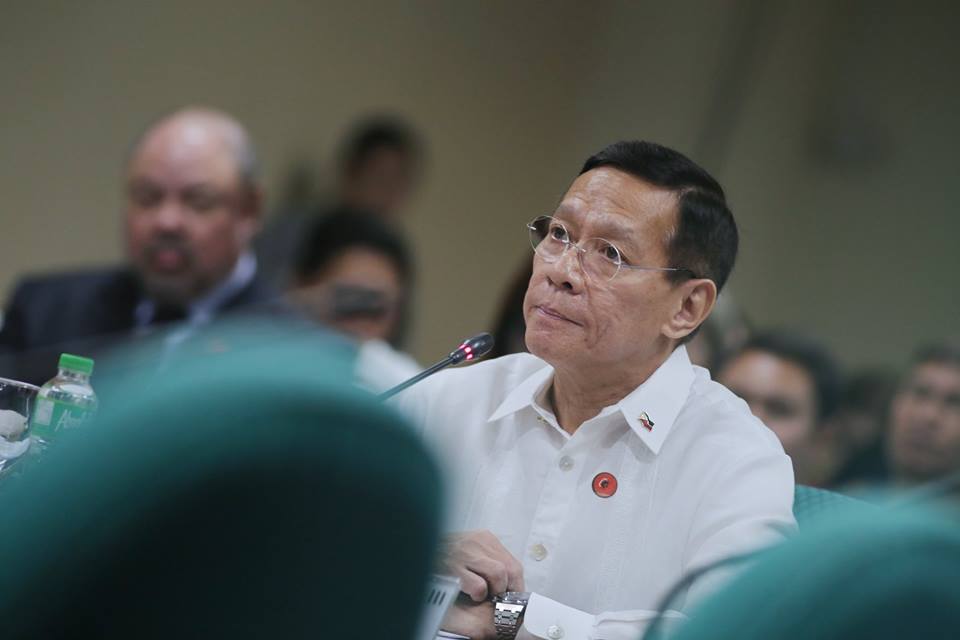Headline
PH can set up capability to detect 2019-nCoV in 48 hours: Duque

During the “Question Hour” conducted at the House of Representatives, Duque said the Japanese counterpart of the Research Institute for Tropical Medicine (RITM) gave the RNA primer to be used for confirmatory testing of the virus. (File Photo: Senate of the Philippines/Facebook)
MANILA–Health Secretary Francisco Duque III on Wednesday said the Philippines would be able to set-up its own capability to detect the novel coronavirus (2019-nCoV) within 48 hours due to the RNA primer sent by Japan.
During the “Question Hour” conducted at the House of Representatives, Duque said the Japanese counterpart of the Research Institute for Tropical Medicine (RITM) gave the RNA primer to be used for confirmatory testing of the virus.
“The Japanese counterpart of the RITM today has just brought with them the team a primer–RNA primer–which is needed to help us identify whether the novel coronavirus suspected cases (are positive or not) once their throat swabs, their nasopharyngeal swabs are submitted to RITM for testing,” Duque told lawmakers.
“With the RNA primer, yes, in about 48 hours, we shall be able to set up our own capability to detect novel coronavirus and no longer need to send (results) for confirmatory testing to Melbourne, Australia,” Duque said.
Duque said the turnaround time will be cut by 50 percent since the acquisition of the primer would eliminate the need to consult Australian experts.
“For the first round of testing, we are adequately supplied. We will have to find out the volume of the supplies that have been brought by the Japanese contingent to help us precisely to do the testing ourselves and confirm it ourselves,” Duque said.
House Committee on Health chairperson Angelina Tan asked Duque if the government has the necessary infrastructure to accommodate the influx of patients if ever cases of the novel coronavirus are reported in the country.
Duque noted that the capacities of all Department of Health (DOH)-retained hospitals and medical centers have been leveled up, noting that there is a directive to set aside a number of isolation rooms in these facilities.
He added that border screening has been heightened and interim guidelines have been released.
“So far as the infrastructure is concerned, from the level of border surveillance, which is the mandate of the Bureau of Quarantine, this has been very much put in place and also this has been heightened to include the reinstatement of the health declaration card or the yellow form, and also the issuance of the interim guidelines which will change from day-to-day as we are updated by the WHO (World Health Organization),” Duque said.
The Health chief also highlighted that the risk communication and community engagement system is also in place.
“The public health advisories, we are leveling this up so that the public will be able to benefit from evidence-based and science-based information and to neutralize whatever infodemics, or the epidemic of false or fake news,” he said.





















